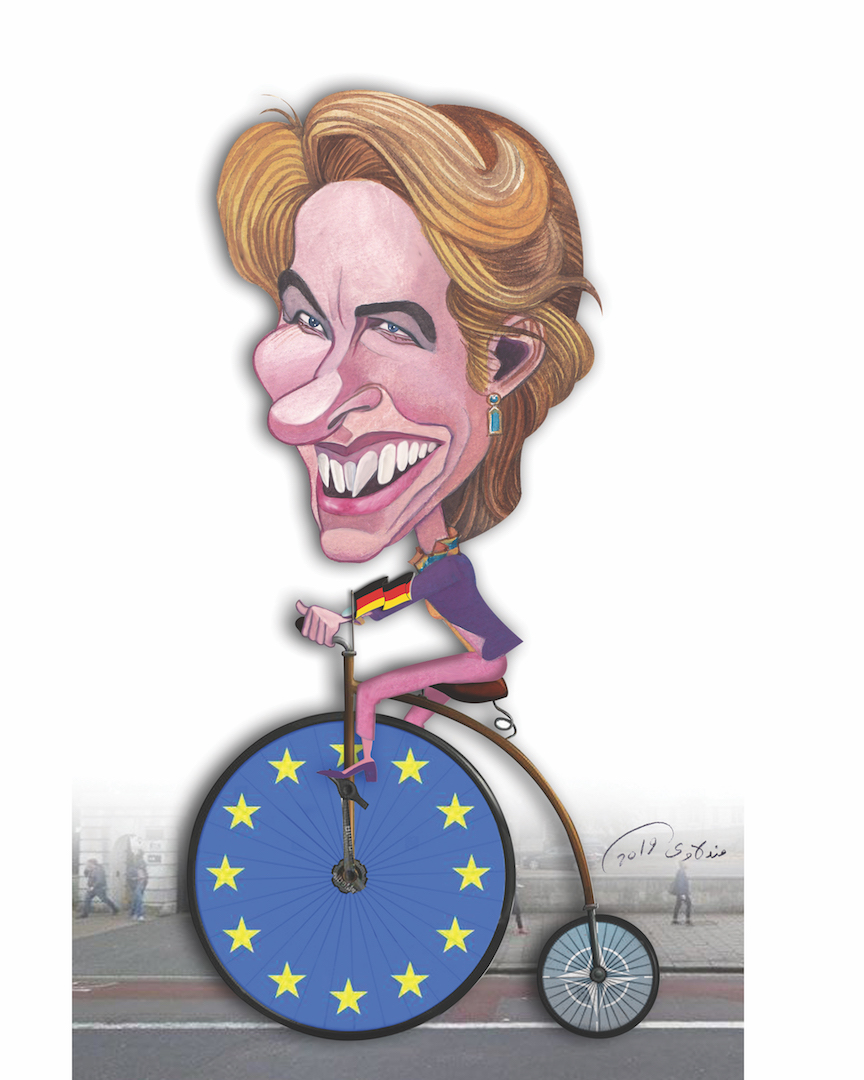
Born in 1958, Ursula Gertrud von der Leyen spent the first 13 years of her life in Brussels, where her father Ernest Alberchy was one of the first European civil servants from the establishment of the European Commission in 1958. She was raised in Christian household that adhered to the traditional model of the West German nuclear family and her father’s career enabled von der Leyen to have an international bringing. In 1986, she married physician Heiko von der Leyen, a member of the von der Leyen family that made a fortune as silk merchants who she met at a university choir in Göttingen. The mum-of-seven children studied medicine and trained as a gynaecologist before entering politics.
Von der Leyen joined the Christian Democratic Union (CDU) in 1990, the same day her father stepped down from his job as state premier, and in 1996 she became involved in the politics of Lower Saxony – the federal state her father had governed (1976-90). She held a series of local and state offices prior to her election in 2004 as a member of the CDU’s leadership committee. After the CDU won the federal elections in 2005, von der Leyen was appointed in Chancellor Angela Merkel’s first cabinet and became a close ally of Merkel. She is the only minister to have served in all of her governments continuously and many had believed that Merkel was preparing von der Leyen to become her successor. Before becoming the first woman to take over the defence portfolio in 2013, she was labour and social affairs minister, and before that, families minister. In those roles she supported quotas for women on company boards and beefed up parental leave for fathers. She stood by Merkel during the refugee crisis.
As defense minister - a job which is viewed as a graveyard for ambitious politicians because of the German public’s wariness of foreign deployment and resistance to military spending - von der Leyen faced many challenges. She is seen as a staunch integrationist, backing closer military co-operation in the EU and highlighting earlier this year the "potential Europe has to unify and to promote peace”. She has also argued for Germany to boost its military involvement in NATO. In recent years, a litany of stories have exposed inadequacies in Germany's armed forces, from inoperable submarines and aircraft to shortages of personnel. Von der Leyen was last year questioned as part of an investigation into spending irregularities. Her department was accused of awards questionable private contracts to consultants that were said to be worth millions of euros.
On July 16, 2019, von der Leyen was elected as the European Commission’s first female president by a narrow margin of just nine votes. After being elected she called for a “united and strong Europe that is ready to fight for the future”. In her bid to win over MEPs she made some big pledges. She said that the EU should beef up its role in tackling poverty and social issues, and said that she wanted the parliament to be able to draft its own laws – something only the Commission can currently do. She has promised to boost the number of staff on the EU’s borders by 10,000 by 2024. The new commissioner has also said she wants Europe to be the first "climate-neutral continent" in the world, proposing a new "green deal" to make the EU carbon neutral by 2050. Von der Leyen also spoken on gender equality, and said that she would propose to add violence against women to the list of EU crimes. Her stance on Brexit is expected to be more of the same, although she has said she’s open to an extension to the Brexit deadline – but the decision won’t be hers as she will be assuming her position on November 1, one day after the UK is due to withdraw from the EU. But her most important job will be in the transition period that follow’s the UK’s departure in which she will play a key role in negotiating the EU’s future relationship with the UK, including a new trade deal.









